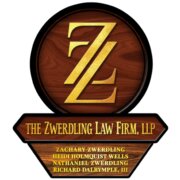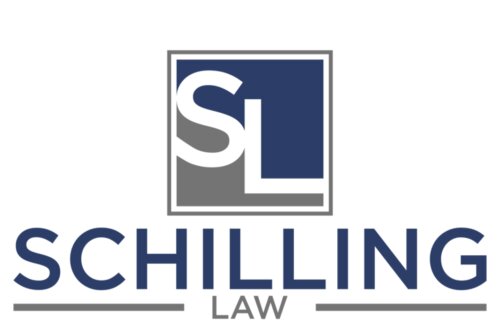Best Toxic Mold Lawyers in Kansas
Share your needs with us, get contacted by law firms.
Free. Takes 2 min.
Or refine your search by selecting a city:
List of the best lawyers in Kansas, United States
About Toxic Mold Law in Kansas, United States
Toxic mold refers to mold growth that produces hazardous mycotoxins, potentially leading to various health issues and property damage. In Kansas, toxic mold typically arises in spaces that have excess moisture or water leaks, such as basements, bathrooms, or homes affected by flooding. Toxic mold legal cases often involve disputes between property owners, tenants, landlords, contractors, builders, or insurance companies. Understanding your rights and obligations regarding mold is essential, as Kansas has specific legal principles and statutes that may apply in these situations.
Why You May Need a Lawyer
Legal help is often necessary when toxic mold has caused health issues, property damage, or disputes over responsibility for cleanup and repairs. Common scenarios where you might need legal advice include:
- Experiencing health problems related to mold exposure in a rented apartment, home, or workplace.
- Buying or renting a property only to later discover a toxic mold problem that was not disclosed.
- Facing disagreement with a landlord over who is responsible for fixing water leaks or paying for mold remediation.
- Insurance companies denying claims related to water damage or mold clean-up costs.
- Contractor negligence leading to water intrusion and subsequent mold growth in new construction or renovations.
- Suffering financial losses due to loss of property value linked to mold contamination.
In such cases, an experienced attorney can help you determine your rights, negotiate with other parties, and if necessary, represent your interests in court.
Local Laws Overview
Kansas does not have comprehensive state legislation that is specific to toxic mold. However, various existing laws may apply to mold-related situations, including:
- Landlord-Tenant Law: Kansas landlords are generally required by state law to provide safe and habitable living conditions for tenants, which can include the obligation to fix leaks, address water damage, and correct persistent mold problems.
- Disclosure Requirements: Sellers of homes are obligated to disclose material defects that would affect the value or safety of a property. Failure to disclose known mold problems can lead to legal claims after the sale.
- Building Codes: While building codes do not specifically regulate mold, they do address construction standards and moisture control, which can be relevant in mold-related disputes.
- Insurance Law: Homeowner’s and renter’s insurance policies may or may not cover mold remediation and related health damages, depending on how the mold developed and the specifics of the policy.
Because the law is evolving around toxic mold, local ordinances and recent judicial decisions can also play a significant role in resolving these cases.
Frequently Asked Questions
What are the health risks associated with toxic mold?
Exposure to toxic mold can cause respiratory problems, allergic reactions, headaches, fatigue, and in severe cases, neurological issues or immune suppression. Children, the elderly, and those with existing health conditions are especially vulnerable.
How do I know if I have a toxic mold problem in my Kansas property?
Common signs include a persistent musty odor, visible patches of mold, excessive moisture or condensation, or unexplained health symptoms in occupants. Professional mold testing and inspection can confirm the presence and type of mold.
Is my landlord responsible for addressing mold in my rental unit?
In most situations, Kansas law requires landlords to maintain safe and habitable living conditions. If the mold is due to a structural issue or water leak not caused by the tenant, the landlord is typically responsible for repairs.
Should I inform my landlord in writing about mold issues?
Yes, always notify your landlord in writing and keep copies for your records. This creates documentation that may support your claim if the problem escalates or legal action is needed.
What if my landlord refuses to fix the mold problem?
If your landlord fails to address the issue within a reasonable timeframe after receiving written notice, you may have options such as withholding rent, paying for repairs and deducting costs, or pursuing legal action. Consulting a lawyer is recommended before taking action.
Can I sue the previous homeowner or real estate agent for not disclosing mold?
If the seller or agent knew about the mold issue and failed to disclose it, you may have grounds for a lawsuit based on misrepresentation or fraud. Legal advice is strongly recommended for assessing your case.
Does homeowners insurance cover mold damage?
Coverage depends on your specific policy and the source of moisture causing the mold. Sudden and accidental water damage may be covered, while long-term leaks and maintenance issues are often excluded. Review your policy for details.
What steps should I take if I discover mold in my Kansas home?
Act promptly to prevent further damage. Stop the source of moisture, document the mold with photos, notify relevant parties (landlord, insurer), and consult with professionals for testing and remediation. Seek legal advice if disputes arise.
Are there deadlines for filing a toxic mold lawsuit in Kansas?
Yes, Kansas law imposes statutes of limitations for personal injury and property damage claims. Typically, you have two years from the date you discover the problem, but there are exceptions. Consult an attorney to avoid missing important deadlines.
Do I need a lawyer to handle a mold claim in Kansas?
While minor issues may be resolved without an attorney, legal representation is often crucial when significant health, property, or financial damages are involved, or when negotiations and claims are complex.
Additional Resources
- Kansas Department of Health and Environment (KDHE): Offers information on mold, water damage prevention, and public health guidance.
- Kansas Attorney General's Consumer Protection Division: Can assist with consumer complaints regarding landlord-tenant disputes and real estate disclosures.
- Local County Health Departments: Provide public health support and may conduct home environment inspections.
- U.S. Environmental Protection Agency (EPA): Offers resources regarding identification, prevention, and remediation of indoor mold.
- Legal Aid Organizations in Kansas: Provide free or low-cost legal assistance for tenants and low-income residents dealing with housing and mold issues.
Next Steps
If you are facing a toxic mold problem in Kansas, consider these steps:
- Document all evidence of mold, including photos, medical records, communication with your landlord or insurer, and repair estimates.
- Notify the responsible party in writing and keep records of all correspondence.
- Arrange for professional mold testing and remediation, if necessary, to assess the extent of the problem.
- Contact your insurance company to review your coverage and submit any claims for mold or water damage.
- If the issue is unresolved or you are experiencing significant health or financial impacts, consult with an attorney who has experience in toxic mold and property law. Many attorneys offer free consultations to discuss your case.
- If you qualify, reach out to local legal aid services for assistance.
Taking swift and informed action is essential to protect your health, property, and rights. Legal advice tailored to your specific situation will help you understand your options and achieve the best possible outcome.
Lawzana helps you find the best lawyers and law firms in Kansas through a curated and pre-screened list of qualified legal professionals. Our platform offers rankings and detailed profiles of attorneys and law firms, allowing you to compare based on practice areas, including Toxic Mold, experience, and client feedback.
Each profile includes a description of the firm's areas of practice, client reviews, team members and partners, year of establishment, spoken languages, office locations, contact information, social media presence, and any published articles or resources. Most firms on our platform speak English and are experienced in both local and international legal matters.
Get a quote from top-rated law firms in Kansas, United States — quickly, securely, and without unnecessary hassle.
Disclaimer:
The information provided on this page is for general informational purposes only and does not constitute legal advice. While we strive to ensure the accuracy and relevance of the content, legal information may change over time, and interpretations of the law can vary. You should always consult with a qualified legal professional for advice specific to your situation.
We disclaim all liability for actions taken or not taken based on the content of this page. If you believe any information is incorrect or outdated, please contact us, and we will review and update it where appropriate.
Browse toxic mold law firms by city in Kansas
Refine your search by selecting a city.














